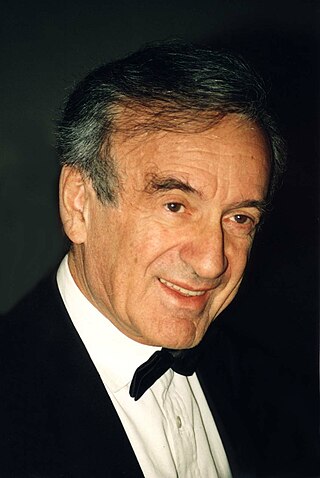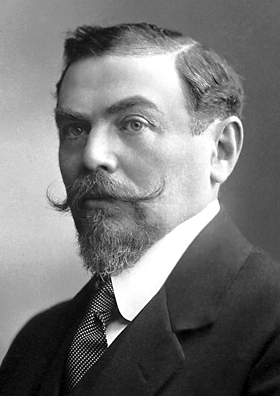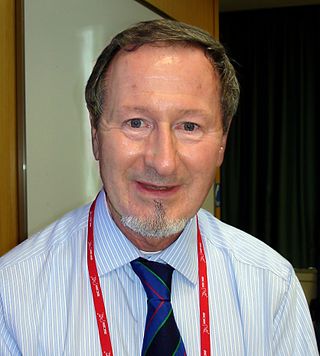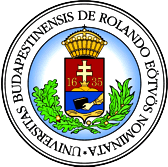Related Research Articles

Eliezer "Elie" Wiesel was a Romanian-born American writer, professor, political activist, Nobel laureate, and Holocaust survivor. He authored 57 books, written mostly in French and English, including Night, a work based on his experiences as a Jewish prisoner in the Auschwitz and Buchenwald concentration camps.

The Nobel Prizes are five separate prizes awarded to those who, during the preceding year, have conferred the greatest benefit to humankind, as established by the 1895 will of Swedish chemist, engineer, and industrialist Alfred Nobel, in the year before he died. Prizes were first awarded in 1901 by the Nobel Foundation. Nobel's will indicated that the awards should be granted in the fields of Physics, Chemistry, Physiology or Medicine, Literature, and Peace. A sixth prize for Economic Sciences, endowed by Sweden's central bank, Sveriges Riksbank, and first presented in 1969, is also frequently included, as it is also administered by the Nobel Foundation. The Nobel Prizes are widely regarded as the most prestigious awards available in their respective fields.

Imre Kertész was a Hungarian author and recipient of the 2002 Nobel Prize in Literature, "for writing that upholds the fragile experience of the individual against the barbaric arbitrariness of history". He was the first Hungarian to win the Nobel in Literature. His works deal with themes of the Holocaust, dictatorship, and personal freedom.

Alfred Hermann Fried was an Austrian Jewish pacifist, publicist, journalist, co-founder of the German peace movement, and winner of the Nobel Peace Prize in 1911. Fried was also a supporter of Esperanto. He is the author of an Esperanto textbook and an Esperanto-German and German-Esperanto dictionary, first published in 1903 and republished in 1905.

George Charles de Hevesy was a Hungarian radiochemist and Nobel Prize in Chemistry laureate, recognized in 1943 for his key role in the development of radioactive tracers to study chemical processes such as in the metabolism of animals. He also co-discovered the element hafnium.

Philipp Eduard Anton von Lenard was a Hungarian-born German physicist and the winner of the Nobel Prize for Physics in 1905 for his work on cathode rays and the discovery of many of their properties. One of his most important contributions was the experimental realization of the photoelectric effect. He discovered that the energy (speed) of the electrons ejected from a cathode depends only on the frequency, and not the intensity, of the incident light.

Douglas Dean Osheroff is an American physicist known for his work in experimental condensed matter physics, in particular for his co-discovery of superfluidity in Helium-3. For his contributions he shared the 1996 Nobel Prize in Physics along with David Lee and Robert C. Richardson. Osheroff is currently the J. G. Jackson and C. J. Wood Professor of Physics, emeritus, at Stanford University.

Vladimir Prelog was a Croatian-Swiss organic chemist who received the 1975 Nobel Prize in chemistry for his research into the stereochemistry of organic molecules and reactions. Prelog was born and grew up in Sarajevo. He lived and worked in Prague, Zagreb and Zürich during his lifetime.

Eötvös Loránd University is a Hungarian public research university based in Budapest. Founded in 1635, ELTE is one of the largest and most prestigious public higher education institutions in Hungary. The 28,000 students at ELTE are organized into nine faculties, and into research institutes located throughout Budapest and on the scenic banks of the Danube. ELTE is affiliated with 5 Nobel laureates, as well as winners of the Wolf Prize, Fulkerson Prize and Abel Prize, the latest of which was Abel Prize winner László Lovász in 2021.

Jerome Isaac Friedman is an American physicist. He is institute professor and professor of physics, emeritus, at the Massachusetts Institute of Technology. He won the 1990 Nobel Prize in Physics along with Henry Kendall and Richard Taylor, "for their pioneering investigations concerning deep inelastic scattering of electrons on protons and bound neutrons, which have been of essential importance for the development of the quark model in particle physics.", work which showed an internal structure for protons later known to be quarks. Friedman sits on the board of sponsors of the Bulletin of the Atomic Scientists.

Avram Hershko is a Hungarian-Israeli biochemist who received the Nobel Prize in Chemistry in 2004.

Dan Shechtman is the Philip Tobias Professor of Materials Science at the Technion – Israel Institute of Technology, an Associate of the US Department of Energy's Ames National Laboratory, and Professor of Materials Science at Iowa State University. On April 8, 1982, while on sabbatical at the U.S. National Bureau of Standards in Washington, D.C., Shechtman discovered the icosahedral phase, which opened the new field of quasiperiodic crystals.

Ferenc Krausz is a Hungarian physicist working in attosecond science. He is a director at the Max Planck Institute of Quantum Optics and a professor of experimental physics at the Ludwig Maximilian University of Munich in Germany. His research team has generated and measured the first attosecond light pulse and used it for capturing electrons' motion inside atoms, marking the birth of attophysics. In 2023, jointly with Pierre Agostini and Anne L'Huillier, he was awarded the Nobel Prize in Physics.

The Nobel Prize in Chemistry is awarded annually by the Royal Swedish Academy of Sciences to scientists in the various fields of chemistry. It is one of the five Nobel Prizes established by the will of Alfred Nobel in 1895, awarded for outstanding contributions in chemistry, physics, literature, peace, and physiology or medicine. This award is administered by the Nobel Foundation, and awarded by the Royal Swedish Academy of Sciences on proposal of the Nobel Committee for Chemistry which consists of five members elected by the Academy. The award is presented in Stockholm at an annual ceremony on 10 December, the anniversary of Nobel's death.
Hugh David Politzer is an American theoretical physicist and the Richard Chace Tolman Professor of Theoretical Physics at the California Institute of Technology. He shared the 2004 Nobel Prize in Physics with David Gross and Frank Wilczek for their discovery of asymptotic freedom in quantum chromodynamics.
References
- ↑ "Hungary's Nobel Prize Winners". Hungarian Academy of Sciences. Archived from the original on 6 October 2015. Retrieved 17 October 2015.
- ↑ "Hungary's Nobel Prize Winners". Hungarian Academy of Sciences. 17 February 2016. Archived from the original on 1 November 2022. Retrieved 20 October 2022.
- ↑ See list below by Laszlo Vazulvonal of Stockholm
- ↑ "The Nobel Prize in Physiology or Medicine 2023" (PDF) (Press release). Nobel Assembly at the Karolinska Institute. 2 October 2023. Archived (PDF) from the original on 3 October 2023. Retrieved 3 October 2023.
- ↑ "The Nobel Prize in Physics 2023" (PDF) (Press release). Royal Swedish Academy of Sciences. 3 October 2023. Archived (PDF) from the original on 3 October 2023. Retrieved 3 October 2023.
- 1 2 3 4 Földesi, Katalin (11 December 2018). "Magyar Nobel-díjasok – III. rész" [Hungarian Nobel laureates – part III]. Tudománypláza (in Hungarian). Archived from the original on 19 October 2022. Retrieved 20 October 2022.
- ↑ "Eugenija Prelog". geni_family_tree. 27 August 2023.
- ↑ "Marija Ana Prelog". geni_family_tree. 24 September 2023.
- ↑ Father 1/2-croat:(Prelog) & 1/2-german:(Riemer). Mother: 2/8-italian (Cettolo) 5/8-croat (Kovacic, Korac), 1/8 german(Mahne)
- 1 2 Beck, Mihály. "A Nobel-díj és a magyar Nobel-díjasok" [The Nobel Prize and Hungarian Nobel laureates](PDF). Budapest Főváros XV. Kerület Rákospalota, Pestújhely, Újpalota Önkormányzata (in Hungarian). Archived (PDF) from the original on 19 October 2022. Retrieved 20 October 2022.
- 1 2 3 4 "Hány magyar Nobel-díjasunk van?" [How many Hungarian Nobel laureates do we have?]. 24.hu (in Hungarian). 7 October 2021. Archived from the original on 18 October 2022. Retrieved 18 October 2022.
- 1 2 3 "Magyar Nobel-díjasok" [Hungarian Nobel laureates]. Nemzeti Tudósképző Akadémia (in Hungarian). Archived from the original on 18 October 2022. Retrieved 18 October 2022.
- 1 2 Beck, Mihály (December 2001). "A magyar Nobel-díjasok" [The Hungarian Nobel laureates]. Magyar Tudomány (in Hungarian). 46 (12). Budapest: Akaprint: 1444–1452. ISSN 0025-0325. Archived from the original on 19 October 2022. Retrieved 20 October 2022.
- ↑ "Samuel Fried". geni_family_tree. 26 April 2022.
- ↑ "Bertha Fried". geni_family_tree. 26 April 2022.
- ↑ Rechcigl Jr., Miloslav (28 September 2021). "Surgeons". American Men and Women in Medicine, Applied Sciences and Engineering with Roots in Czechoslovakia. Bloomington, IN: AuthorHouse. p. 470. ISBN 978-1-6655-1497-2. LCCN 2021901850. Archived from the original on 5 October 2023. Retrieved 4 October 2023.
- ↑ "Archived copy". Archived from the original on 11 October 2023. Retrieved 5 October 2023.
{{cite web}}: CS1 maint: archived copy as title (link) - ↑ Manyi, Józsi, Terka etc are hungarian names
- ↑ "Loránd Eötvös". The Nobel Prize. April 2020. Archived from the original on 21 October 2022. Retrieved 21 October 2022.
- ↑ "V von Schulek". The Nobel Prize. April 2020. Archived from the original on 21 October 2022. Retrieved 21 October 2022.
- ↑ "Andreas Högyes". The Nobel Prize. April 2020. Archived from the original on 21 October 2022. Retrieved 21 October 2022.
- ↑ "Josef von Fodor". The Nobel Prize. April 2020. Archived from the original on 21 October 2022. Retrieved 21 October 2022.
- ↑ "Alexander von Korányi". The Nobel Prize. April 2020. Archived from the original on 21 October 2022. Retrieved 21 October 2022.
- ↑ "Stephan Apáthy". The Nobel Prize. April 2020. Archived from the original on 30 November 2022. Retrieved 30 November 2022.
- ↑ "Geza Mansfeld". The Nobel Prize. April 2020. Archived from the original on 21 October 2022. Retrieved 21 October 2022.
- ↑ "Ladislas de Meduna". The Nobel Prize. April 2020. Archived from the original on 21 October 2022. Retrieved 21 October 2022.
- ↑ "Hans Selye". The Nobel Prize. April 2020. Archived from the original on 28 August 2023. Retrieved 5 October 2023.
- ↑ "Miklos Jancsó". The Nobel Prize. April 2020. Archived from the original on 21 October 2022. Retrieved 21 October 2022.
- ↑ "Franz Kemény". The Nobel Prize. April 2020. Archived from the original on 29 September 2022. Retrieved 21 October 2022.
- ↑ "Franz (Ferenc) Herczeg". The Nobel Prize. April 2020. Archived from the original on 29 September 2022. Retrieved 21 October 2022.
- ↑ "Dezsö Szabó". The Nobel Prize. April 2020. Archived from the original on 28 September 2022. Retrieved 21 October 2022.
- ↑ "Cecile Tormay". The Nobel Prize. April 2020. Archived from the original on 26 October 2016. Retrieved 21 October 2022.
- ↑ "Gyula Illyés". The Nobel Prize. April 2020. Archived from the original on 28 September 2022. Retrieved 21 October 2022.
- ↑ "Nomination%20archive%20-%20%20%20". NobelPrize.org. 1 April 2020. Archived from the original on 28 March 2023. Retrieved 11 May 2023.
- ↑ "Georg Lukács". The Nobel Prize. April 2020. Archived from the original on 29 September 2022. Retrieved 21 October 2022.
- ↑ "László Mécs". The Nobel Prize. April 2020. Archived from the original on 28 September 2022. Retrieved 21 October 2022.
- ↑ "Sándor Weöres". The Nobel Prize. April 2020. Archived from the original on 29 September 2022. Retrieved 21 October 2022.
- ↑ "Count Albert Apponyi". The Nobel Prize. April 2020. Archived from the original on 21 October 2022. Retrieved 21 October 2022.
- ↑ "George J. Stigler". The Nobel Prize. Archived from the original on 27 April 2021. Retrieved 11 January 2022.
- ↑ https://www.familysearch.org/en/surname?surname=ondo
- ↑ "Max Furchgott". Geni. 17 January 2020. Archived from the original on 20 October 2022. Retrieved 20 October 2022.
- ↑ "Archived copy". Archived from the original on 11 October 2023. Retrieved 5 October 2023.
{{cite web}}: CS1 maint: archived copy as title (link) - ↑ "Bertha Furchgott". Geni. 17 January 2020. Archived from the original on 3 August 2022. Retrieved 20 October 2022.
- ↑ " Juraschek Franz von ". In: Österreichisches Biographisches Lexikon 1815–1950 (ÖBL). Vol. 3, Austrian Academy of Sciences , Vienna 1965, p. 154.
- ↑ " Bauer Alexander ". In: Österreichisches Biographisches Lexikon 1815–1950 (ÖBL). Vol. 1, Austrian Academy of Sciences , Vienna 1957, p. 54.
- ↑ Kurt Haidinger (1953), "Bauer, Alexander Emil Anton", Neue Deutsche Biographie (in German), vol. 1, Berlin: Duncker & Humblot, p. 636; ( full text online )
- ↑ "Bauer, Alexander - Deutsche Biographie". www.deutsche-biographie.de (in German). Deutsche Biographie. Retrieved 19 May 2024.
- ↑ "Franziska von Szikler". zbphysik.univie.ac.at.
- ↑ Added by László Vazulvonal of Stockholm
- ↑ "Archived copy". Archived from the original on 11 October 2023. Retrieved 6 October 2023.
{{cite web}}: CS1 maint: archived copy as title (link) - ↑ "Gion Nándor". 5 January 2024 – via Wikipedia.
- ↑ "Katharina Müller". geni_family_tree. 3 May 2022.
- ↑ "dr.med. Franz Wilhelm Lippich". geni_family_tree. 13 June 1799. Archived from the original on 6 April 2023. Retrieved 6 April 2023.
- ↑ "Kastenholz Honorius Vilmos". Archived from the original on 11 July 2022. Retrieved 12 September 2023.
- ↑ "Kastenholz János András, | Magyar írók élete és munkái – Szinnyei József | Kézikönyvtár". Archived from the original on 21 September 2023. Retrieved 12 September 2023.
- ↑ "Wilhelmine Lippich". geni_family_tree. Archived from the original on 6 December 2022. Retrieved 6 April 2023.
- ↑ "The Nobel Prize in Physics 2004". NobelPrize.omrg. Archived from the original on 6 April 2020. Retrieved 6 April 2023.
- ↑ "Patrick Modiano, True Detective". The New Yorker. 28 September 2015. Archived from the original on 5 April 2023. Retrieved 6 April 2023.
- ↑ "Josef Ofenheimer". geni_family_tree. 30 April 2022.
